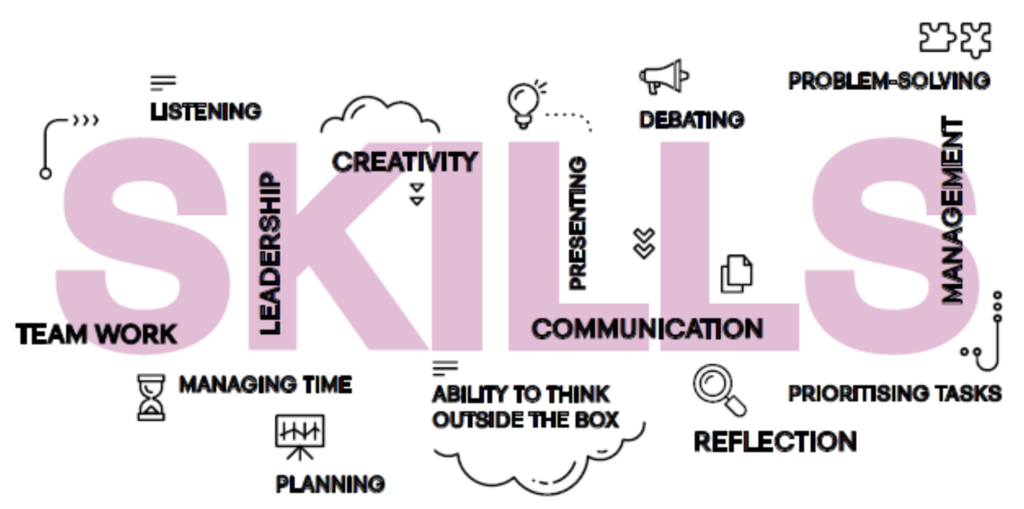“In 2021, employers will need to continue helping their teams develop the skills to deal with the ongoing change and take them into a new era of work.”
Recruiting experts, Hays
So, what are these skills?
Soft skills are vital
The OECD, in their Skills for 2030 conceptual learning framework, argue as follows:
“Social and emotional skills, such as empathy, self-awareness, respect for others and the ability to communicate, are becoming essential as classrooms and workplaces become more ethnically, culturally and linguistically diverse.”
In line with this, recruiting experts, Hays, surveyed 23,000 professionals across the UK and identified the following top five soft and five specialist skills that employers are looking for:
Soft Skills
1. Communication and interpersonal skills
2. Ability to adopt change
3. Problem-solving
4. Flexibility and adaptability
5. People management skills
Specialist Skills
6. Projects and change management
7. Finance
8. Operations
9. IT Infrastructure
10. Managerial/leadership
A major German survey in 2020 of more than 500 companies revealed similar conclusions. The study identified a number of Future Skills — skills that will become more important for professional work and/or participation in society in the next five years across all industries and business sectors. In addition to digital and technological skills, they found an increasing need in German companies — post-pandemic — for other Future Skills such as adaptability, perseverance, problem-solving and creativity.
In another recent study, the CBI identified many similar soft skills and qualities that employers are seeking in university graduates:

This raises a key question: how far are employees seeking and demonstrating these skills?
Soft skills most lacking
Hays found that there was something of a mismatch in the skills that employees wanted to develop and those that employers were looking for. This is supported by international research from the QS Intelligence Unit and the ISE (Institute of Student Employers) 2019 survey of nearly 28,000 respondents, which revealed some significant gaps. The table below compares the top ten most important skills for employers globally with the skill gaps that employers perceive.
Rank order of the top ten most important skills for employers globally
1. Problem-solving
2. Teamwork
3. Communication
4. Adaptability
5. Inerpersonal skills
6. Data analysis
7. Resilience
8. Organisation
9. Technical
10. Subject knowledge
Rank order of the 10 skills with the largest gap between importance and employer satisfaction (%)
1. Problem-solving (29)
2. Resilience (29)
3. Communication (24)
4. Adaptability (20)
5. Data analysis (20)
6. Leadership (19)
7. Creativity (18)
8. Organisation (17)
9. Teamwork (15)
10. Interpersonal skills (15)
Addressing the skill gaps
Many of the skills referred to above relate to what we call Global Fitness — the personal qualities, understandings, and skills needed to function effectively in today’s VUCA (volatile, uncertain, complex and ambiguous) world.
For more information on several of these Global Fitness attributes, see our GPC Overviews, such as on Building rapport, Rapport and unconscious bias, Minimising misunderstanding, and Effective teamworking.
In terms of addressing any skills gaps and promoting Global Fitness, a key first step is to identify priorities. This is where our Global Teamworking Profiler can help. Focusing on the team environment, it probes many of the skills and processes identified in the studies above, such as team communication processes, interpersonal skills, people management skills, adaptability, and so on.
To find out how you could benefit from the insights offered by our Global Teamworking Profiler and associated coaching and development, opportunities, just get in touch with us.
Professor Helen Spencer-Oatey and Professor Peter Franklin


